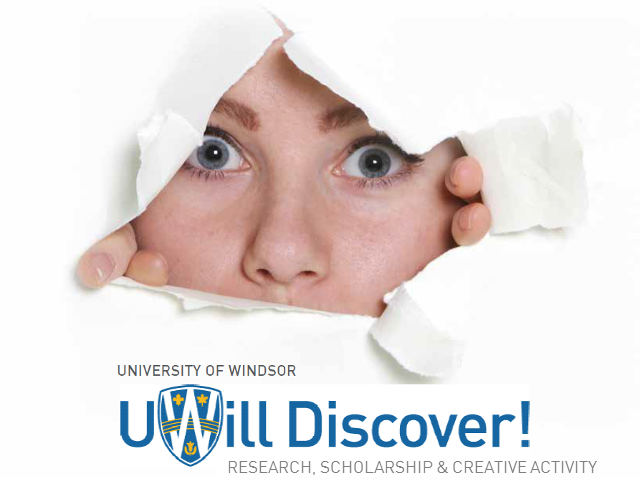Type of Proposal
Visual Presentation (Poster, Installation, Demonstration)
Faculty
Faculty of Arts, Humanities and Social Sciences
Proposal
Transitional programs help prepare students with learning disabilities for the initial scholastic and societal demands that arise when entering a post-secondary institution from high school. However, research concerning the lasting influence of these programs on student’s identity status are limited despite the increasing prevalence of youth with learning disabilities. The Bridge to University for Individuals with Learning Disabilities (B.U.I.L.D.) transitional program at the University of Windsor offers youth with documented learning disabilities skills and resources to help ease this transition. In this ongoing exploratory study, surveys were distributed to B.U.I.L.D. 2017 participants’ (n=12) on several characteristics such as sense of community, academic stress, self-efficacy, and individual’s group, self, and disability identity prior to commencement of the program and one semester following. Interviews to gather qualitative data are currently ongoing. This mixed method study evaluates the impact of the B.U.I.L.D. program on the identity status and psychosocial adjustment of students with learning disabilities to expand this body of research on both identity salience and learner empowerment. The theory of identity status used was developed by James Marcia (1980), which focuses on identity crisis and adolescent development by examining the varying degree to which an individual explores and commits to an identity. The preliminary findings suggest that the B.U.I.L.D. program acts as a promoter for the development of new constructs that are more encompassing of the person's identity which reflects students either committing to an identity or exploring it. It is important to note that this study’s primary concerns are with the individual student experience and impact, not an evaluation of the B.U.I.L.D. program. The data collected in this study will help implement changes for future students contributing to the larger picture of the B.U.I.L.D. program. Keywords: transitional programming, learning disabilities, psycho-social adjustment, emerging adulthood, character formation, identity status
Start Date
22-3-2018 10:55 AM
End Date
22-3-2018 12:15 PM
Location
Alumni Auditorium C
Grand Challenges
Viable, Healthy and Safe Communities
Special Considerations
Even though the study is currently ongoing, it will be completed before the conference. Thank you for your consideration.
BUILD(ing) a successful transition to University
Alumni Auditorium C
Transitional programs help prepare students with learning disabilities for the initial scholastic and societal demands that arise when entering a post-secondary institution from high school. However, research concerning the lasting influence of these programs on student’s identity status are limited despite the increasing prevalence of youth with learning disabilities. The Bridge to University for Individuals with Learning Disabilities (B.U.I.L.D.) transitional program at the University of Windsor offers youth with documented learning disabilities skills and resources to help ease this transition. In this ongoing exploratory study, surveys were distributed to B.U.I.L.D. 2017 participants’ (n=12) on several characteristics such as sense of community, academic stress, self-efficacy, and individual’s group, self, and disability identity prior to commencement of the program and one semester following. Interviews to gather qualitative data are currently ongoing. This mixed method study evaluates the impact of the B.U.I.L.D. program on the identity status and psychosocial adjustment of students with learning disabilities to expand this body of research on both identity salience and learner empowerment. The theory of identity status used was developed by James Marcia (1980), which focuses on identity crisis and adolescent development by examining the varying degree to which an individual explores and commits to an identity. The preliminary findings suggest that the B.U.I.L.D. program acts as a promoter for the development of new constructs that are more encompassing of the person's identity which reflects students either committing to an identity or exploring it. It is important to note that this study’s primary concerns are with the individual student experience and impact, not an evaluation of the B.U.I.L.D. program. The data collected in this study will help implement changes for future students contributing to the larger picture of the B.U.I.L.D. program. Keywords: transitional programming, learning disabilities, psycho-social adjustment, emerging adulthood, character formation, identity status

